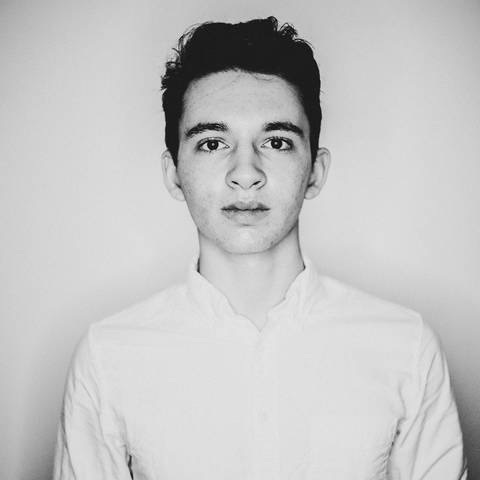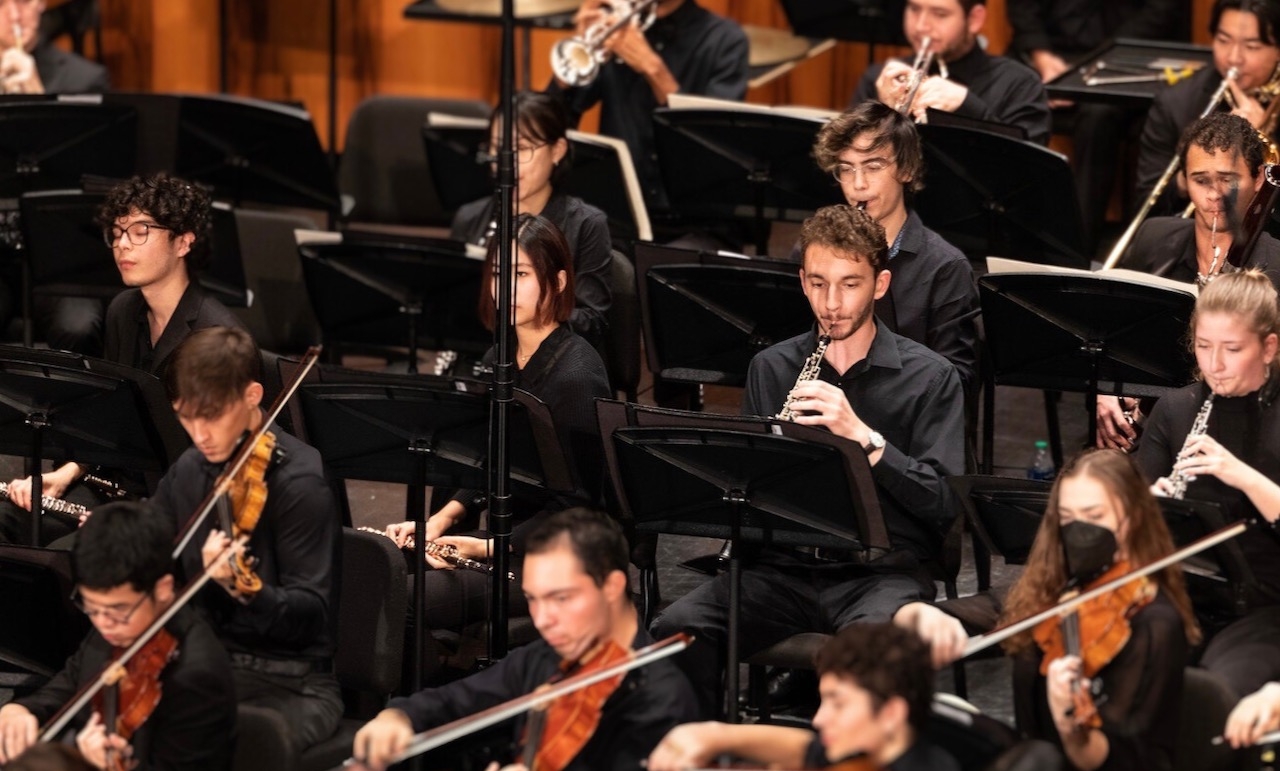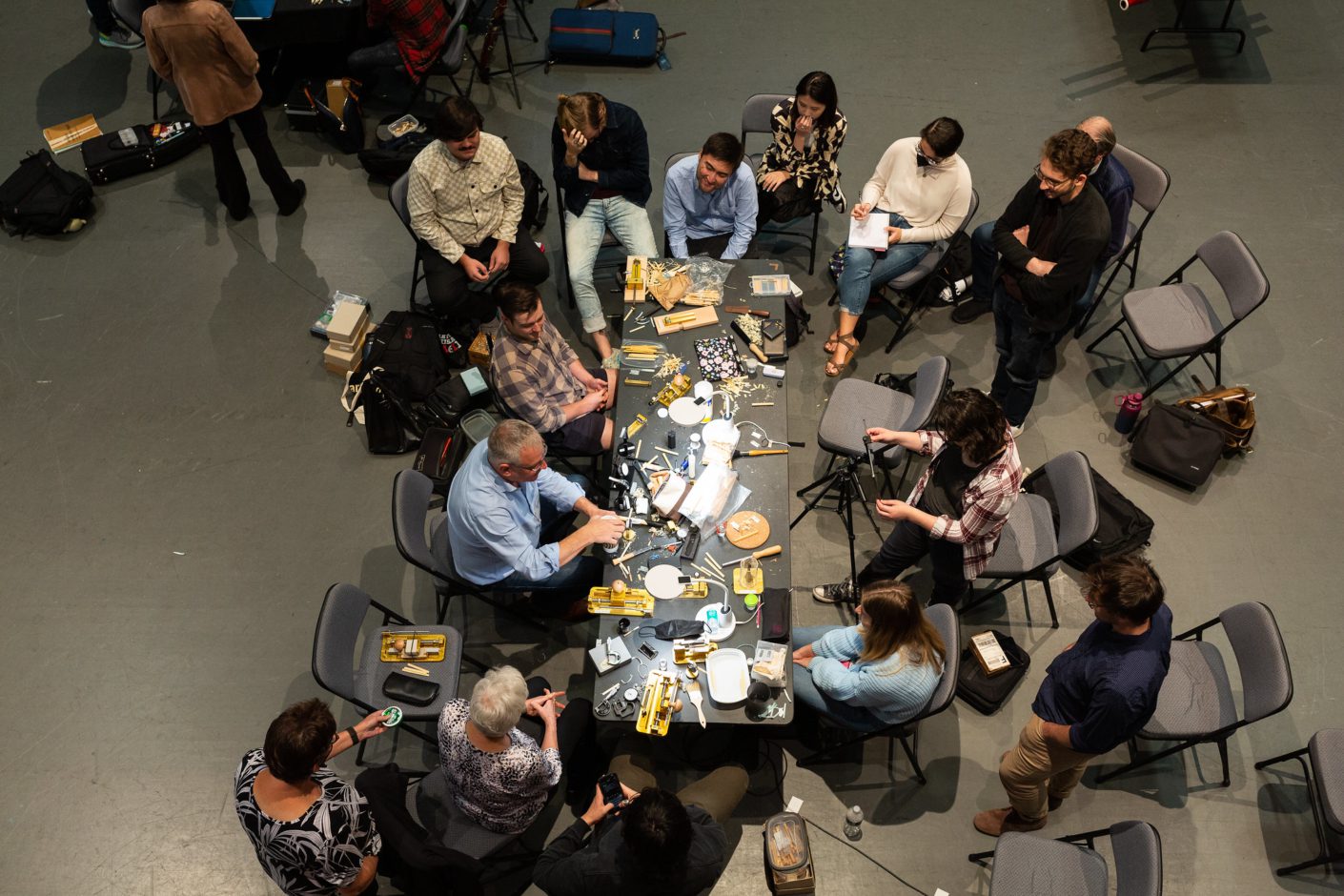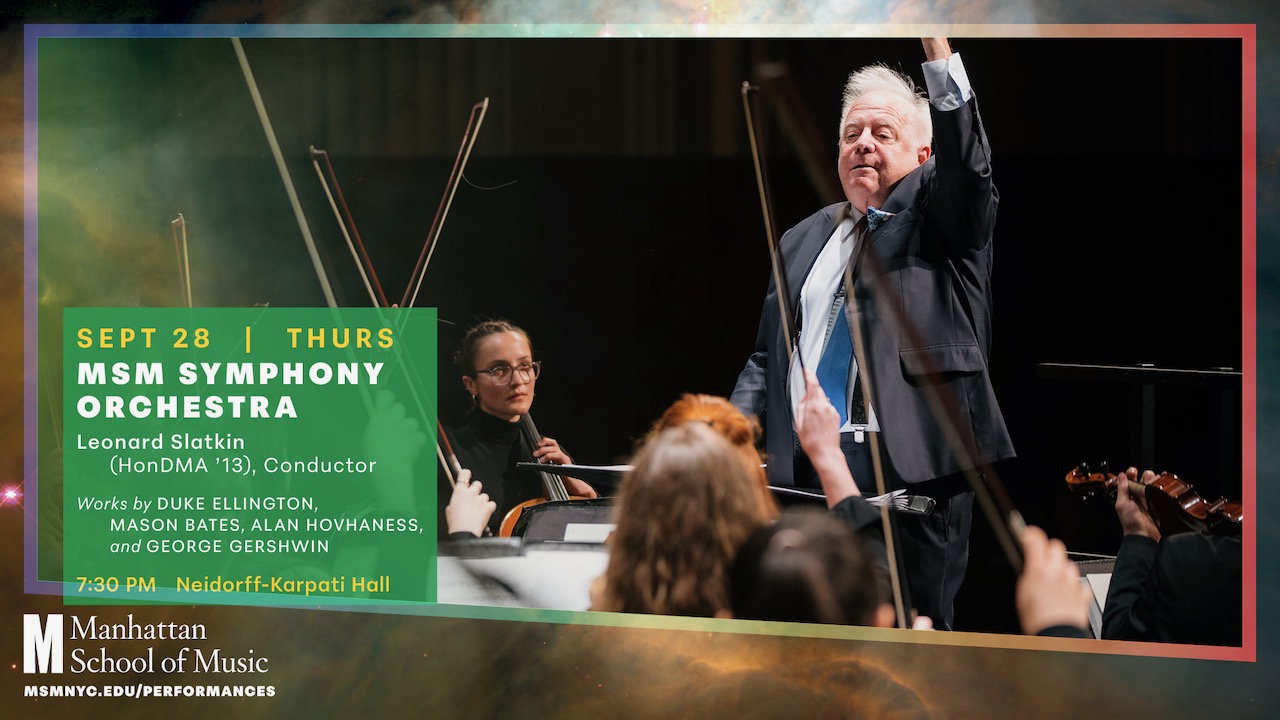Aaron Haettenschwiller (BM ’22, MM ’24) is a second-year master’s student studying classical oboe under the tutelage of Robert Botti. He performed in the MSM Symphony Orchestra concert conducted by Leonard Slatkin (HonDMA ’13, MSM trustee) on Thursday, SEPT 28, at 7:30 PM in Neidorff-Karpati Hall.
We spoke to Aaron in advance of the concert, and he discussed his experience playing under Maestro Slatkin and spoke to us about his time at MSM so far.
Growing up in Baltimore, Maryland, Aaron first started playing oboe at the age of 10. He attended the Baltimore School for the Arts before receiving his Bachelor of Music at Manhattan School of Music in 2022. He is currently completing his master’s degree.

Tell us about the program of this eagerly anticipated September 28 concert.
Aaron: I think this concert has a great program with a very cohesive focus. The composers are all American to start, and furthermore, each composer brings a very unique outside voice to the symphonic form. Duke Ellington’s Three Black Kings has an incredibly broad range, going from orchestral to full-on jazz big band. We have an incredible jazz saxophone soloist, and I particularly love the absolute euphoria of the last movement.
The contemporary work of the program, Mason Bates’s The B Sides, complements this with its mix of electronics, which is used to completely different effect in each movement; the last one sounds like a rave! The highlight for me from that piece is definitely the second movement. I think it has an incredible atmosphere.
In the second half of the program, Hovhaness’s Symphony No. 2 feels almost like we’re playing renaissance choral music at times, and I think it comes across very beautifully.
Last but certainly not least, George Gershwin‘s American in Paris is a classic that I imagine most people in the audience will know, and it’s a classic for a reason. Classical music and jazz have a closely shared past and have always been in dialogue with one another since the beginning of the 20th century, and I think the way that Gershwin — perhaps better than any other composer — walks the narrow line between them reflects that connection with one another very well, and I think it is a great way to close out the program.
What do you enjoy about working with Maestro Leonard Slatkin?
Aaron: Maestro Slatkin is very patient in how he works with the orchestra, but he also has very clear ideas for each piece of music and is able to communicate those ideas to the orchestra clearly and efficiently.

"I think this concert has a great program with a very cohesive focus," says Aaron Haettenschwiller (BM '22, MM '24, Classical Oboe), center right in photo.
Are there any upcoming performances at MSM or elsewhere in NYC that you are looking forward to?
Aaron: MSM Opera Theatre is doing Benjamin Britten’s A Midsummer Night’s Dream later this semester. I love all of Britten’s operas, and I am always thoroughly impressed by MSM’s opera productions, so I am very much looking forward to that.
There’s an Orchestral Performance concert coming up that includes Schnittke’s Piano Concerto and Mendelssohn’s Symphony No. 4 — that will definitely be a great concert that people should go see as well.
Outside of MSM, the New York Philharmonic is doing several concerts with pieces by György Ligeti programmed to celebrate his 100th birthday, and as I am a huge fan of Ligeti’s music, I will definitely be attending at least a few of those!
What piece of advice do you have for anybody interested in pursuing oboe at MSM?
Aaron: I would say don’t be afraid to get help from teachers and fellow oboists; the oboe faculty at MSM are all incredible teachers and are very committed to helping the students here. Oboe is challenging to play, and they have a lot of knowledge that they are more than happy to share.
My other piece of advice is to find a way to find enjoyment in making reeds, it is easier for some oboists than others, but everyone has struggles with reeds, and having a way to keep it a more positive experience will help a lot.
It can be through listening to music, podcasts, doing something positive directly before or after making reeds, or even how the area where you make reeds looks aesthetically!

Making reeds at MSM: Aaron, upper right hand corner, at Double Reed Day 2022 sponsored by MSM faculty members Sherry Sylar, William Short, and Reeds 'n Stuff.
“Maestro Slatkin is very patient in how he works with the orchestra, but he also has very clear ideas for each piece of music and is able to communicate those ideas to the orchestra clearly and efficiently.”
What are you listening to right now?
Aaron: I’m always listening to so much music, so that’s hard to answer but I’ll do my best: Most recently, I’ve been listening to a lot of Brahms, especially his second symphony, his Handel variations for piano, and Schoenberg’s arrangement of his first piano quartet for orchestra is a personal favorite of mine. I’ve also been listening to quite a lot of string quartets, ranging from Beethoven to Schnittke.
Outside of classical, my most recent obsession has been an album of traditional Bulgarian music by the Smithsonian Explorer Series. I really love the different approach to harmony!
I’ve also been listening to a lot of Frank Zappa, another Baltimore native. I especially love his albums Over-Nite Sensation and Jazz from Hell, and I also just listened to Cecil Taylor’s Unit Structures, which features some insane jazz oboe which is a very rare feature.
Also, I recently attended a concert with John McLaughlin’s Shakti, which was incredible and has sent me down a rabbit hole of listening to a lot of Zakir Hussain’s solo tabla performances. However, my favorite single part of that concert was from the opening act, Bela Fleck performing a set of solo pieces. The highlight of these was an incredibly virtuosic rendition of Gershwin’s Rhapsody in Blue for solo banjo!

